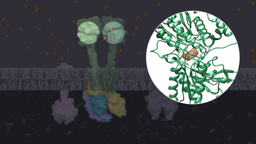A day in the life of… a project manager in a life science research infrastructure

My scientific career in academia started in a very traditional way: a Master degree in Biosciences in my home country at the ENS Lyon, France, a PhD in the field of molecular biology at the University of Edinburgh in Scotland, and a postdoc at the CRG in Barcelona, Spain, to get the vitamin D that I had missed after five years spent in Scotland! After roughly ten years in academia, I decided to go for a career change to develop new skills and discover a new working environment. Although I did not have a clear idea of what I wanted to do, I was looking for a job in the field of life sciences, with a strong international dimension as working in an international environment was an aspect of my scientific career that I really appreciated. This is how I found my new position as trainee project manager in Instruct-ERIC, the pan European research infrastructure for structural biology.
I start my day by…
Although my activities vary tremendously on a day-to-day basis depending on the upcoming deadlines, meetings, conferences and open calls, I would always start my day by checking and replying to my pending emails and messages on Slack, checking my calendar for the day and looking at my to-do list.
My role in the infrastructure is…
I am highly involved in a Horizon 2020 project called EOSC-Life, which brings together life science research infrastructures to create an open, digital and collaborative space for biological and medical research. In that project, I work alongside colleagues from other European research infrastructures as leader of one of the Work Packages (WPs). Our main function in our WP is to organize calls for user projects. We are involved in the design and the organization of the calls, which includes the writing of the guidelines, the outreach, and the organization of the review process. We are also guiding the applicants through the EOSC-Life project from the application stage to the reporting of their projects outcome, making sure that the project teams benefit from the resources, support and training available within ESOC-Life to carry on with their project.
Within Instruct-ERIC, I am also to a lesser extent involved in the day-to-day management of the research infrastructure that focuses on offering access to cutting-edge technologies and services in the field of structural biology. It involves a lot of communication with our users, to help them access our services and inform them of events or other opportunities that can be of interest to them. I am also involved in the organization of events such as scientific webinars for our research community.
My workspace is normally…
My desk at home, my couch, or my table in the garden. I was hired in the middle of the pandemic and I have been working remotely since then, although this should change in the coming weeks. Working remotely worked very well for me as the majority of my collaborators come from different research infrastructures all over Europe and beyond. However, I will be looking forward to some face-to-face interaction in the coming months.
A challenging part of the job is…
One of the biggest challenges in this work as a project manager is probably in mastering the art of communication. We work in close collaboration with very different partners within Instruct – policy makers, IT staff, life scientists, students, finance staff – and it can be a real challenge to fine tune and adapt the communication depending on the target audience.
Another challenging aspect of the job is the management of the large flow of information coming our way. We need to be able to filter and redistribute this efficiently towards the relevant partners to keep them informed about events or opportunities that can be of interest for them without drowning them with non-relevant information: that's not such an easy task!
My advice to early-career researchers interested in project management would be…
Don't hesitate to apply for a project manager position even if you have no real training in management! You might be as lucky as I was and actually be hired and trained on the job which is probably the best way to learn and find out if the job is made for you!
Top image of post: by geralt from Pixabay.





Join the FEBS Network today
Joining the FEBS Network’s molecular life sciences community enables you to access special content on the site, present your profile, 'follow' contributors, 'comment' on and 'like' content, post your own content, and set up a tailored email digest for updates.